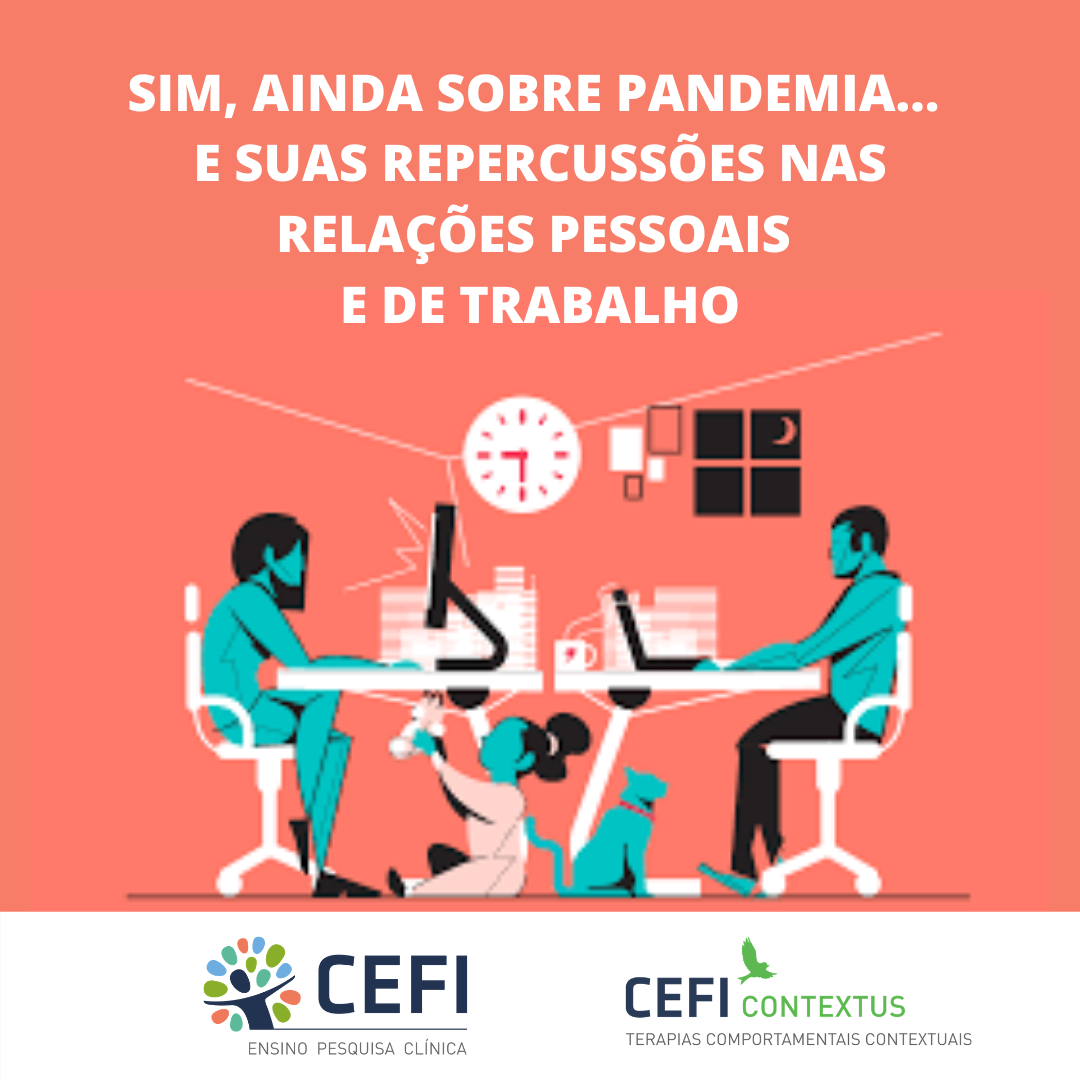Yes, still on pandemic ... and its repercussions on personal and work relationships

Mara Lins
In addition to health and financial problems, the pandemic has also hampered interpersonal relationships, by many factors: loss of people, health, economic loss and many insecurities. We cross a year of blockade, not only physical, but also emotional.The sexologist and therapist of Couples Esther Perel says disasters and crises usually function as relationship accelerators: can increase our sense of mortality, precariousness, that sense that life is short. And when life is short, you can say suddenly: 'Let's live together, let's have a child, let's get married, let's separate'. Makes you think of something like: 'What am I waiting to do what I want?'
In the current moment it is possible to compare people's reactions with periods of wars: some people dealt cushioned, with very vigilant behaviors, experiencing life as a matter of basic survival. Others, however, had an incredible taste for conversation, music, dancing, love, sex. These understood the "energy of life as an antidote to death". So, they did not only rebuild their lives after the war, but also, in a way, they prospered. It is not denial of the problem, or sadness, but choose from which way will lead to life, even with the problem, still with sadness.
When thinking about how to drive life before this pandemic, take into account the deep despair that many people felt during confinement. There are lutos that did not have their lament and farewell space, there have been serious economic losses, insecurities and suffering for the necessary changes. These lutos also need to be shared, for pain, when divided, get less hurt.
Regarding work, for people who were able to work from home, this has not only meant a complete loss of limits, meant a loss of routines that used to define our lives. The pre-pandemic routine determined: "I dress to work. I move to work. I greet the doorman. I get my coffee. I enter the office. I say hello to people and I will start my task. " These are ritualized behaviors that indicate that we enter the workplace and that a different part of our identity is emerging.
When working from home, there was loss of limits and structure: many people feel as if all their identities had become one: "I am a mother / father, I am a wife / husband, I am a lover, I am a Amiga / friend, I am a daughter / son, I am the manager, I am the reporter, I am a lady / owner of the house, I am, I am ... "everything happening in a chair at the same kitchen desk or the bedroom, the 'Home Office'. The professional life prior to Covid came with norms, rules and obligations, and we lose these demarcations, a fact that helps us make us so exudience.
And here there is also the possibility of choosing how to deal, as being / staying at home opens the possibility of having experiences that there has long been, of interacting more with the children, with the partner (a), to create hot moments, to talk, listen to music, dancing, having sex ...
As more and more people are being vaccinated, it will intensify the desire to reconnect with aspects of life, in a sense of openness, curiosity, relief. Sooner or later the parties will start again, the meetings will happen again, the work will resume its face-to-face space, etc. People will resume, as they did after all wars and after all other pandemics. And only time will tell which brands they stayed for each of us ...
In front of this, the most important, before during and after the pandemic is: the connection between people. Humans, wherever they are, seek to connect with someone who will help them feel less alone in their experience, this path is essential for life energy as an antidote to death. Regardless of the pandemic, that life that has, for the period that is, worth being lived.

